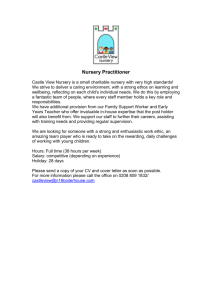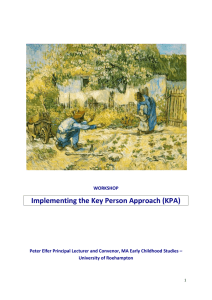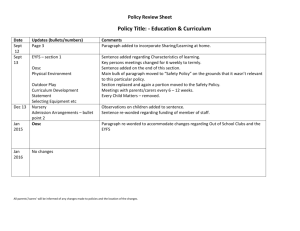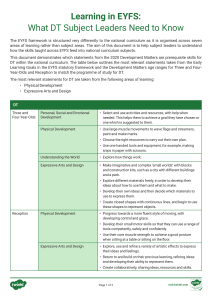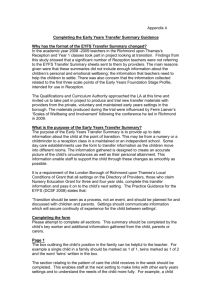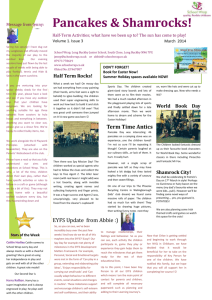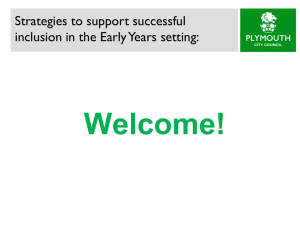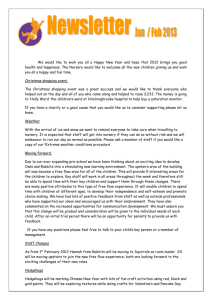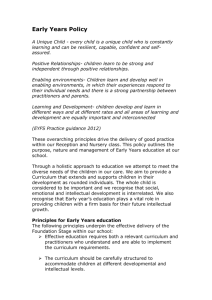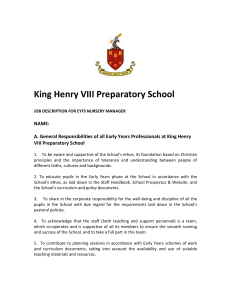Curriculum_policy - Ogley Hay Nursery School
advertisement
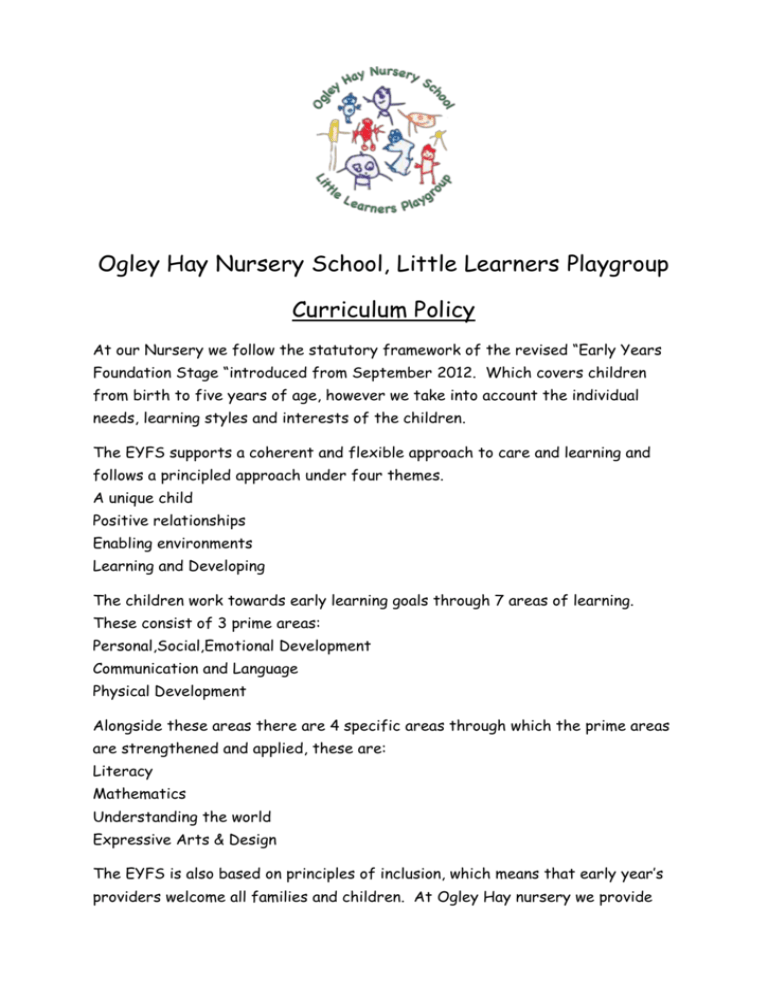
Ogley Hay Nursery School, Little Learners Playgroup Curriculum Policy At our Nursery we follow the statutory framework of the revised “Early Years Foundation Stage “introduced from September 2012. Which covers children from birth to five years of age, however we take into account the individual needs, learning styles and interests of the children. The EYFS supports a coherent and flexible approach to care and learning and follows a principled approach under four themes. A unique child Positive relationships Enabling environments Learning and Developing The children work towards early learning goals through 7 areas of learning. These consist of 3 prime areas: Personal,Social,Emotional Development Communication and Language Physical Development Alongside these areas there are 4 specific areas through which the prime areas are strengthened and applied, these are: Literacy Mathematics Understanding the world Expressive Arts & Design The EYFS is also based on principles of inclusion, which means that early year’s providers welcome all families and children. At Ogley Hay nursery we provide care and education for all children, whatever their abilities, in environments that enable children to feel safe and supported. We extend learning and development by planning for children’s individual needs and interests and documenting their progress in their learning journeys. Throughout the EYFS, emphasis is placed upon understanding each child and their family as unique, with different needs and concerns. Key Characteristics which help us to deliver the curriculum. The Learning Environment: Welcoming and inviting. Safe and secure but enables the child to be challenged and take risks. Encourages co-operation and negotiation and promotes positive behaviour Stimulating and interactive. Allow autonomy by giving access to well ordered resources. Allows access to a range of activities indoors and out doors. Caters for individual learning styles with a range of sensory material. Encourages the holistic development of the child. Displays which value children’s efforts, give children a sense of ownership of their environment and sense of belonging. Displays which celebrate the process of learning, allowing children to revisit their learning and inform visitors and parents of children’s achievements. Reflects the diverse needs of all children. Children: Have fun and develop a positive disposition to learning. Have access to a broad and balanced curriculum in which they are given choices, where they are expected to take growing responsibility for themselves and where their autonomy is respected. Have opportunities to explore using all of their senses. Have opportunities to problem solve and investigate. Are encouraged to articulate their feelings, needs and opinions and be consulted about issues concerning themselves. Are challenged and supported to achieve high standards. Role of the Practitioner: To care for children and ensure their needs are met. To respect and value each child. To respond effectively to the diverse needs and abilities of all children. To interact positively and promote self esteem and self worth To offer children challenge and praise and support effort. To observe, assess and document children’s learning and plan stimulating enjoyable activities that respond to children’s particular interests and learning styles. To act as a positive role model as a lifelong learner. To contribute to the development of the setting by working as part of a team, evaluating their own practise and training needs and contributing to debate. Parents and Families: We actively value the contribution and culture of the home and regard parents and families as co-educators. We respect and value each family and actively seek to work with them. We seek run quality pre-nursery groups to engage parents and families as early as possible. We hold adult learning sessions and seek to engage all families to raise their aspirations and expectations for themselves and their children. The effectiveness of this policy will be monitored by formal and informal observations of teaching and formal and informal monitoring of learning by a whole team approach. Date – Sept 2015 Headteacher ________________________________ Chair of Governors ________________________________

